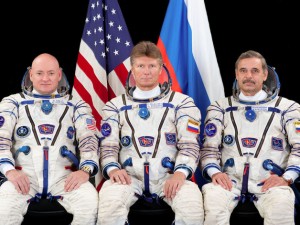It was only a few months ago, that Russia and the West appeared to be exploring different technological and economic paths. Russia’s Space Department previously revealed that towards the latter end of this decade, the motherland would explore alternatives to the International Space Station. However, it now appears the world can rest at ease as the successful combination of American funding and Russian expertise will continue to work side by side beyond 2024.
The New International Space Station
Roscosmos leader, Igor Komarov explained both NASA and his agency would “work together on a program of a future space station”.
Brokered in Kazakhstan, the new deal not only prolongs the cosmonaut relationship between the US and Russia beyond the existing agreement of 2020, but welcomes diversity allowing other nations and private firms to get involved in space projects.
However, without question Russia’s commitment and cooperation to the International Space Station is a huge relief for NASA. Currently, only Russia has the capability to ferry astronauts to the International Space Station. The majority of cosmonauts with experience aboard the ISS are Russian, including three of those currently aboard.
This deal will not eliminate discussions for a ‘Russian Space Station’ although most will have to admit the idea seems most unlikely with further cooperation announced for Mars projects.
A Joint Mars Mission?
NASA revealed “Our area of cooperation will be Mars. We are discussing how best to use the resources, the finance, we are setting time frames….” This is a colossal development from the two leading space protagonists and comes just weeks after China revealed plans to create a lunar colony on Mars by 2025.
Similar to any International Space Station replacement, NASA may well need the ‘Reds’ to reach the ‘Red planet’. Whilst NASA is working on a Space Launch System (SLS) capable of carrying 70 and 130 tonnes into orbit, Russia’s development of a new super rocket is already under-way. Yesterday, Roscosmos announced a projected launch date of 2030.
Russian Enthusiasm for Space
It is not just Mars that Russia has it sights on. Russia has also pressed on with special projects relating to the earth’s natural satellite, the Moon. Next year, Roscosmos will undertake detailed research on the Moon’s South pole and by 2019 have plan to introduce a polar lander equipped with a drill to search for ice and water.
All this despite the horrifying set-back with Russia’s Progress spacecraft which last week entered the wrong orbit leading to a devastating prediction: “…further flight of the spacecraft and its docking to the ISS are believed to be impossible”. Currently, the spacecraft is spinning uncontrollably around the globe.
Here, is where we arrive at the crucial difference between NASA and Russian attitudes towards space. Space exploration has always maintained a sense of folklore in the motherland and even when projects are unsuccessful the determination to fund future space projects fails to wane. NASA by contrast have often been accused of exploring a commercial future and remember it was only by a 216-215 vote in the House of Representatives that the International Space Station was actually given the mandate for construction.
If humanity is to explore and develop an understanding beyond it’s current parameters, it is obvious it requires NASA’s capital and Russian expertise.



